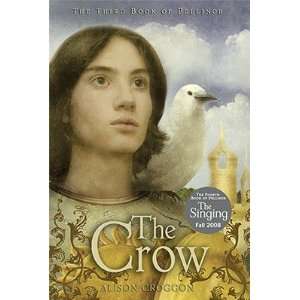Book:
Outbound Flight by Timothy Zahn
Description: It began as the ultimate voyage of discovery--only to become the stuff of lost Republic legend... and a dark chapter in Jedi history. Now, at last, acclaimed author Timothy Zahn returns to tell the whole extraordinary story of the remarkable--and doomed--Outbound Flight Project.
The Clone Wars have yet to erupt when Jedi Master Jorus C'baoth petitions the Senate for support of a singularly ambitious undertaking. Six Jedi Masters, twelve Jedi Knights, and fifty thousand men, women, and children will embark--aboard a gargantuan vessel, equipped for years of travel--on a mission to contact intelligent life and colonize undiscovered worlds beyond the known galaxy. The government bureaucracy threatens to scuttle the expedition before it can even start--until Master C'baoth foils a murderous conspiracy plot, winning him the political capital he needs to set in motion the dream of Outbound Flight.
Or so it would seem. For unknown to the famed Jedi Master, the successful launch of the mission is secretly being orchestrated by an unlikely ally: the evil Sith Lord, Darth Sidious, who has his own reasons for wanting Outbound Flight to move forward... and, ultimately, to fail.
Yet Darth Sidious is not the mission's most dangerous challenge. Once under way, the starship crosses paths at the edge of Unknown Space with the forces of the alien Chiss Ascendency and the brilliant mastermind best known as "Thrawn." Even Jedi Knight Obi-Wan Kenobi, aboard Outbound Flight with his young Padawan student, Anakin Skywalker, cannot help avert disaster. Thus what begins as a peaceful Jedi mission is violently transformed into an all-out war for survival against staggering odds--and the most diabolical of adversaries.
Timothy Zahn's unique mix of espionage, political gamesmanship, and deadly interstellar combat breathes electrifying life into a Star Wars legend. (book jacket)
My Thoughts: Well... I wouldn't go so far as "breathes electrifying life."
I enjoyed reading about certain characters' stories. Thrawn is always SO much fun to read about. I love watching him figure things out and make brilliant tactical decisions (and yes, I very much enjoy the confusion of everyone around him as well!). He was much more of a free agent here than he was later. Watching Palpatine's/Sidious' machinations was also great fun. I especially enjoyed the fact that one character was working for both Palpatine and Sidious... ah, the irony!
And the ending was a perfect, perfect Star Wars ending. It epitomized why I love Star Wars so much!!
*very minor spoiler* It involved amazing self-sacrifice and beating ridiculous odds. What's not to love?
*end of spoiler*
Unfortunately I had to read the rest of the book to get to the ending. A huge part of my problem with this book (actually all Star Wars novels set just before and during the Clone Wars) is that I know what's going to happen--maybe not at the end of the book (although this time I did--come on, the
book flap tells you that Outbound Flight is doomed!), but certainly in a few years. Somehow, the Emperor will make whatever happens work to his advantage, even when the Jedi feel all accomplished because they've saved something or someone. It's very frustrating!!
But I was curious what happened to Outbound Flight, so I decided to check this out when I saw it at the library. (Maybe from now on I should just read the Wookieepedia page?).
My main problem with
Outbound Flight was the characters. ALL of them were stupid and/or annoying!! There was
one character that I liked (C'baoth's student, Lorana Jinzler), probably because she actually experienced character development, but everyone else was just frustratingly unintelligent. Obi-Wan was still an awful teacher at this point, and not a very good Jedi; Jorus C'baoth was just incredibly arrogant; the smugglers Qennto, Ferasi, and Car'das seem oddly content to be captured by Thrawn for months on end. I think I would have thrown my copy of this book multiple times if it hadn't been a library book--and I have to be very frustrated to want to throw a book!! Most characters fell flat, which made it very very hard to become invested in the story.
So I clearly didn't enjoy
Outbound Flight all that much. It was meant as a light read, and that's what it was (and not a very well-done one, at that). Fans of Zahn's earlier Thrawn trilogy will probably enjoy it; many of the same players are brought in and explored further, but I didn't much enjoy that trilogy and enjoyed
Outbound Flight even less.






